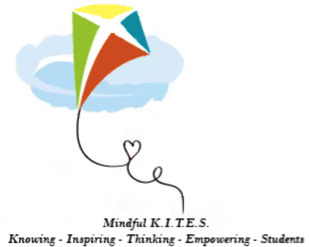
At the beginning of every new week, month or year, many people make a practice of taking time to re-evaluate their lives, by making lists of goals and things-to-do while critically assessing where they are as opposed to where they would like to be. Sometimes, this process can lead to more harm than good, when planning can become extensive and overwhelming, leading to further anxiety and frustration. This is a common phenomenon for teenagers and young people. While there are many tangible benefits to reflection and planning, it is important that we all maintain a sense of gratitude for the many blessings, opportunities and positive aspects of our lives. Plan with a purpose while remaining grateful for your gifts. Gratitude is one of many positive emotions that leads to wellness, by placing focus on the good and being consciously thankful for these things.
It is easy to go through daily life taking for granted many things that truly are gifts. The health and ability to awaken each day. A place to live. Food, clean water, family, friends and even high-speed wifi access. These and all the trappings of modern living in Trinidad and Tobago have become the expected, but we should acknowledge that these are indeed blessings for which we should be grateful.
The practice of gratitude actually goes a step further beyond simply saying “thank you” and embodies the conscious act of taking opportunities to pause, reflect and truly appreciate the world around us. Showing gratitude does not just feel good. It has been demonstrated that making a habit of gratitude repeats many benefits to our bodies, emotional health and productivity.
- Gratitude opens us up to more possibilities by boosting our ability to see opportunities, learn and make god decisions.
- Positivity overpowers negative emotions. Young people who appreciate what they have are happier, more empowered and experience fewer mental health concerns including anxiety and depression. Rather than focussing on what is missing, gratitude facilitates a sense of calm and expectant possibilities for the future.
- Gratitude and other positive emotions build on each other. When young people are grateful, they quickly experience happiness, calm, joy and hope. These lead to positive actions, paying forward positivity and increased attention to development of a positive family, school and community. When we feel grateful for an act of kindness toward us, we may be more likely to do kindness in return. In effect, there is a positive effect on someone else’s actions.
- Being thankful helps to build better relationships. When parents openly express thanks to their teens for their contributions to the home, school or general family life, they feel appreciated. This works toward building better relationship by creating bonds and strengthening ties,
The most effective way for teenagers and adults to express gratitude as a lifestyle is to build a habit of counting blessings. On a daily basis, pay attention to things you recognize in your life that you are happy to experience. Take moments every day to acknowledge and notice the beauty of the island around you. We are fortunate to live in a country as diverse and culturally rich as ours, yet we all too often forget, or allow unfortunate events to overshadow our opportunities. In addition to this practice, we should make a positive habit of physically thanking the people in our lives when they display acts of kindness. A phone call, written note or thank you card all are meaningful and tangible expressions of thanks. Grateful young people and adults feel a sense of abundance in their lives, appreciate the contributions of others and recognize the small pleasures of life. Teaching teenagers the active practice of gratitude has many rewards toward their emotional health and wellness.
